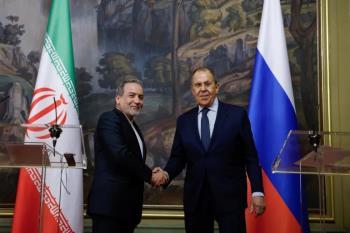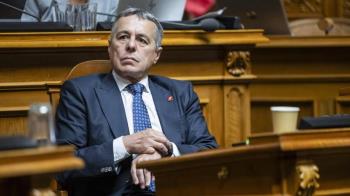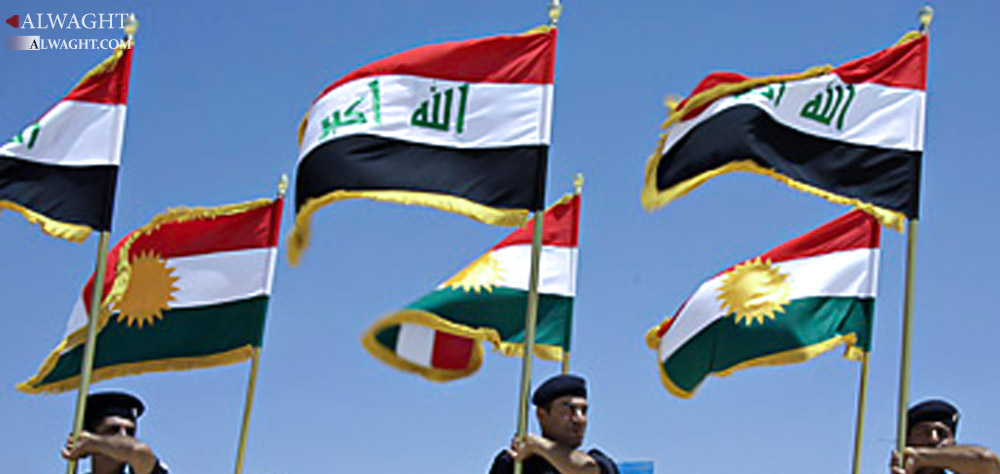Alwaght- Each of the Iraqi religious sects and ethnic groups are working in independence from each other. But beside the political fragility, they have a recessive commitment to Iraq’s central government. Alienated from the country’s central government, the Iraqi Sunni population is demanding more freedom and independence for activity. They identify themselves as nationalist Iraqis and do not want the central government to break down. In the present time, the Sunni Arabs in Iraq are following separate and competitive local schemes, which all are tied to the structures, resources and the communities inside Iraq.
Some of Sunni Arab leaders are demanding for their autonomously-ruled regions. On the other hand, non-Sunni Iraqis’ moving out of Nineveh province is one of the proposals offered by the Sunnis. But, some other Sunnis have defended the capital Bagdad against ISIS’ terror attacks, as they have voiced support for a strong central government. In fact, the Sunni Arabs of Iraq continue to defend the country’s government and its sovereignty. For example, despite the significance of the regional ties, the Sunni Arabs have stood by the Shiite Arabs and the rest of the Iraqis in protesting against Turkey’s military incursion in to Iraq’s northern territory. The Shiite and Sunni members of the Council of Representatives of Iraq, or simply the parliament, have spoken out against the Turkish intervention in Iraq’s affairs, calling the move a blatant violation of independence of a sovereign state. Actually, only Atheel al-Nujaifi, Nineveh’s former governor, and Masoud Barzani, the president of Iraq’s Kurdistan region, have welcomed Turkish presence in Iraq for the so-called training of the Sunni Arab and Kurdish Peshmerga forces to prepare them for battle against terrorism. Some of the Kurdish region’s officials oppose Barzani’s family having special relations with the Turkish President Recep Tayyip Erdogan. Thus, the Gorran Party’s representatives in the Iraqi parliament and some other societies in Sulaymaniyah city have come against Turkish military presence in Nineveh and considered it an intervention in Iraq and the Kurdish cause. In fact, Baghdad centrality still remains a significant political linchpin for these groups to maintain the balance of power in the region.
At the same time, a portion of Shiite community seeks a balance of Iraq’s regional interests and a guarantee for the country’s sovereignty. It was this position that led the Iraqi Prime Minister Haider al-Abadi to highlight that Iraq would stay neutral amid the recent tensions between Saudi Arabia and Iran. On the other hand, there are efforts under way to fill the gaps between the ethnic splits across the society. For example, Karbala, a Shiite city, is now shelter for 180,000 people displaced by ISIS in the country. They include Shiite Turkmens, Shiite Kurds and others from Nineveh province- 250 families of them are Sunni Arabs. Some of the Sunni Arabs who left Ramadi five years ago are now living in Karbala. Furthermore, even the Sunni clan leaders go to Karbala for business and other activities, though the city is not their final destination. Referring to Karbala residents’ helps in the Iraqi media, these Sunni local leaders call these helps as motives pushing them to develop a sense of unity. This is a feeling of ordinary people and though the politicians are surprised to face such a feeling.
Despite their unbreakable commitment to the Kurdistan region, the Kurds have never cut off their bonds with the Iraqi mainland. In other words, the recent developments possibly bring the dispersed Iraqi groups under an inclusive concept of the Iraqi identity. Currently, different communities care about their territory’s boundaries and have their own flag and claims. But, the transformation of the local power in to mutual dependence between the small government players has challenged the “end of Iraq or Iraq split” theories, driving the religious and ethnic groups in the country towards unity. What happened is that the extremely separated political institutions are trying to rebuild the power within the government body.
The life and interests of the small and dependent institutions are tied to political alliances and economic exchanges with other groups and the country’s central government so that Baghdad’s government keeps standing. In a bid to reduce the sectarian conflicts, the Defense Minister Khaled al-Obaidi has visited Basra almost a week ago and demanded that the tribes and clans be disarmed because he sees the sectarian conflicts as an undermining element while the country is confronting terrorism. Holding arms in Iraq has roots in the tribal history of the country. A couple of months ago, Ammar al-Hakim, the leader of the Islamic Supreme Council of Iraq, said that aiming arms at the brothers was a help for ISIS and terrorism. Additionally, some of the Iraqi members of parliament have also demanded for notification and self-awareness to be developed by the civil societies in order for the tensions to be de-escalated.
In fact, having in mind that the tribal problems are tied to the present-time political and security status, the only way to contain the sectarian tensions is that the members of the parliament, the government officials and other politicians break away with their ethnic bonds and instead improve an awareness of the national identity. In the present time, the presence of around 40,000 anti-terror Sunni fighters has created a significant and necessary balance within the popular forces. In fact, PM al-Abadi could change the general view held about the Public Mobilization Forces, which sees them as wholly Shiite forces, through including the Sunni fighters inside the voluntary forces. The Iraqi government has decided to combine them with the anti-ISIS defense units. In other words, the presence of the Sunni fighters within the body of the Public Mobilization Forces could present a prelude for arranging a national army which at the same time could be a national guard. This combination could make it clear that Sunni and Shiite forces could fight shoulder to shoulder for liberation of the Sunni-inhabited cities.
On the other hand, the US-led coalition’s forces have trained 16,000 Iraqi fighters, while 4,400 of them are Sunni Iraqis. They identify themselves as directly relevant to the operations commands and Iraq’s army. All in all, the shared security threats and challenges, like ISIS and other terror groups along with displacement of over 3,000,000 million Iraqis, would prepare the ground for convergence and strengthening of the general Iraqi identity in confrontation of the common dangers. In the Ramadi recapture operation, the Iraqi army has insisted on further involvement of the Sunni forces. Actually, in the past few months, the Sunni minority which has held a feeling of alienation with Iraq’s central government has moved close to Baghdad and other Iraqi sectarian groups. To put it another way, nationalism should not be underestimated in Iraq, though it has many ups and down ahead.



























